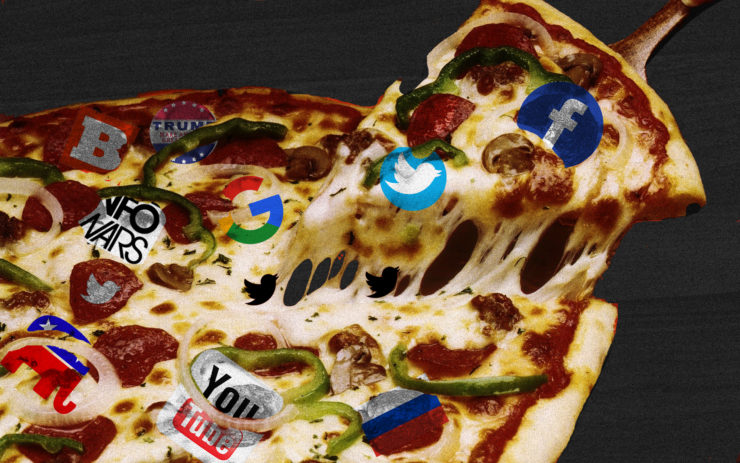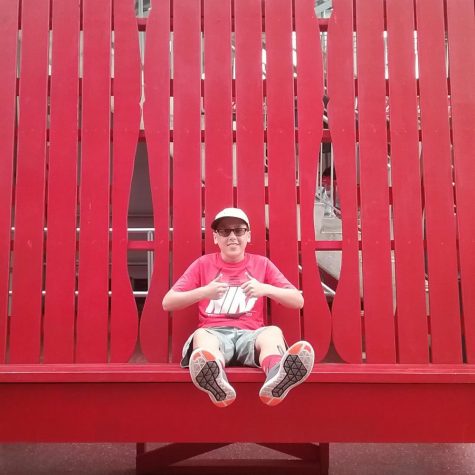Ms. Hunt’s War on Fake News
Photo found at www.revealnews.org
Pizza gate wasn’t funny. It changed the course of an election. Fake news is that powerful.
March 14, 2018
“There was no 1 point where fake news became an issue. As a Social Studies teacher, I always taught students how to read the news carefully and how to assess the news piece for the standards of quality journalism” said Ms. Hunt. For the past 2 years, Ms. Hunt has made combating fake news the life’s blood of her class, using as many examples as she can of fake news.
The very first lot of fake news her students looked at was the pizzagate scandal back when the 2016 presidential election was going on. The accusation was that Hillary Clinton ran a child molestation ring in a pizza place in DC. News agencies were broadcasting this, websites were posting the information, and no one checked to make sure it was true. After this, her students realized how bad fake news can be to everyone.
We always hear the term fake news, but what does it mean and where did it originate? According to the BBC, fake news all started in the small European town of Veles located in Macedonia. It was created to give the residents of this poor town quick cash for readers reading in to these fictional stories, these stories could consist of any topic but would seem very believable, such as mentally ill gunman shoots up german embassy in Paris, or Saudi Arabia sends an airstrike on Tel Aviv. (Found at http://www.bbc.com/news/blogs-trending-42724320)
How does Ms. Hunt get all of her news…and how does she know it is fake? One tool that she has been using is Checkology, “I started using the program…and though the organization that created it, The News Literacy Project. I wanted to partner with them, but they were pretty exclusive, and then 2 years ago they opened up a pilot.” The site is run by professional journalists. But according to CommonSense.org, “though the lessons could be long, with ‘fake news’ a pressing concern, Checkology’s literacy lessons offer…skills to help students evaluate sources.”
“The volume of information that students are getting now is enormous…my hope is that the lessons provided give them the skills [to decide] maybe some of it is made up and some of it is not. …Hopefully that stuck, and that they can identify different zones of information.”




